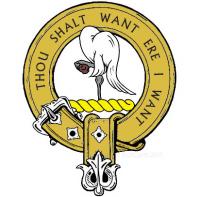
Clan Cranstoun
Clan Cranstoun People
Catherine Cranston (1849 – 1934)
Widely known as Kate Cranston or Miss Cranston she was a leading figure in the development of the social phenomenon of tea rooms. She is nowadays chiefly remembered as a major patron of Charles Rennie Mackintosh and Margaret MacDonald in Glasgow, Scotland, but the name of Miss Cranston's Tea Rooms lives on in reminiscences of Glasgow in its heyday.
Her father George Cranston was a baker and pastry maker and in 1849, the year of her birth, he became proprietor of the Edinburgh and Glasgow Railway Chop House and Commercial Lodgings at No. 39 George Square in Glasgow city centre. The hotel was renamed the Royal Horse, then by May 1852 was Cranston's Hotel and Dining Rooms, offering:
"Convenient Coffee room and detached Smoking Rooms on Ground Floor, commodious Commercial Room and Parlour, comfortable Bed-rooms and Baths, &c. Coffee always ready. Cigars, wines, spirits, ales, Newspapers, Time-Tables, Writing Materials. Superior and varied Bill of Fare at the usual moderate charges".
Her older brother Stuart (1848-1921) became a tea dealer and, according to Glasgow in 1901, was "a pioneer of the business" there of "tea shops pure and simple" who by 1901 had three such tearooms offering nothing more substantial to eat than a sandwich. Kate went on to create much more of a social facility.
Like other cities in the United Kingdom, Glasgow was then a centre of the temperance movement which sought an alternative to male-centred pubs. Tea had previously been a luxury for the rich, but from the 1830s it was promoted as an alternative to alcoholic drinks, and many new cafés and coffee houses were opened, catering more for ordinary people. However it was not until the 1880s that tea rooms and tea shops became popular and fashionable.





